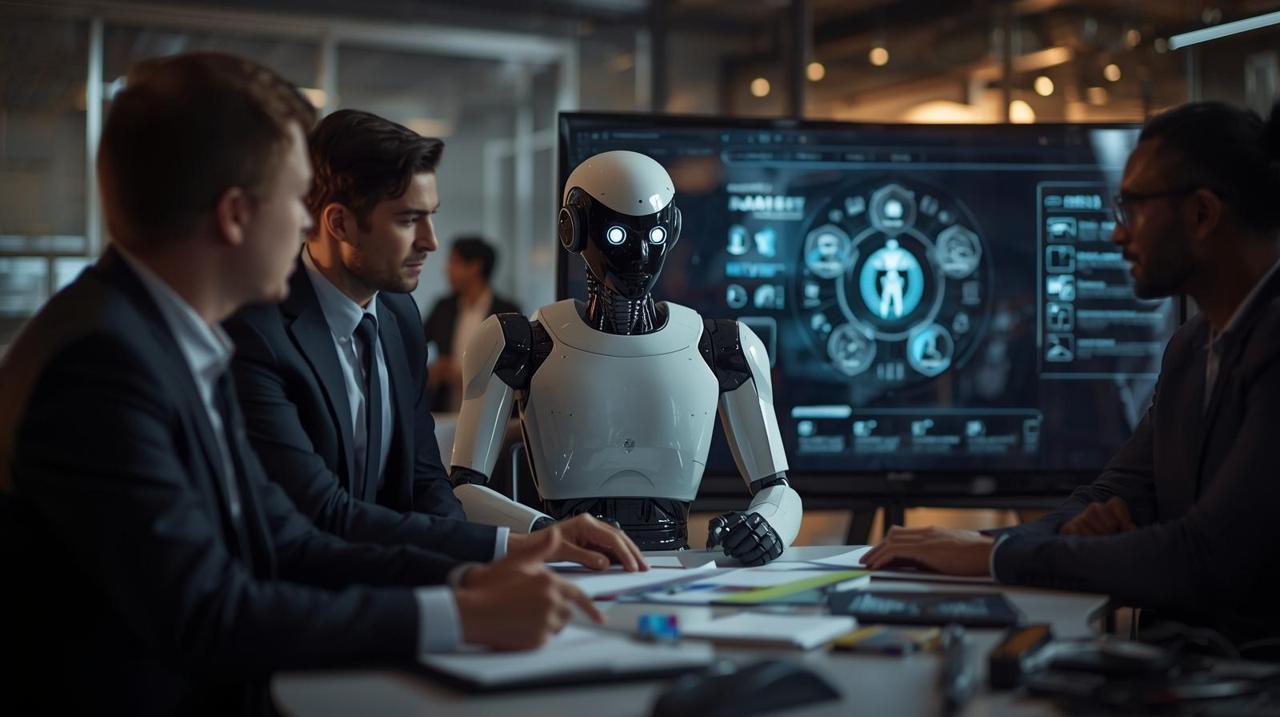You have not yet added any article to your bookmarks!

Join 10k+ people to get notified about new posts, news and tips.
Do not worry we don't spam!

Post by : Samjeet Ariff
Artificial Intelligence (AI) is evolving industries at an unprecedented pace. From automated customer interactions to AI-fueled data analysis, it’s changing how we work, communicate, and live. A pressing question persists: will AI replace existing jobs or spark new opportunities?
The answer is multifaceted. While AI will automate routine tasks, it simultaneously paves the way for new roles and career opportunities. Experts predict that the next decade will focus on collaboration between humans and machines, rather than a competitive relationship.
Technologies like machine learning, robotics, and natural language processing are already making waves across various industries. For instance:
In manufacturing, robots excel in precision-based assembly tasks.
In finance, AI systems process large data sets more efficiently than human analysts.
In retail, chatbots handle customer inquiries around the clock.
While these innovations enhance operational efficiency, they also diminish the need for some manual or repetitive positions.
A recent study by the World Economic Forum indicates that, although 83 million jobs might be wiped out due to automation, 69 million new roles could be generated globally. This suggests that rather than shrinking, the job market is evolving.
AI does not merely replace jobs; it is reshaping the nature of work. New positions are emerging that were nonexistent a decade ago, including:
AI Trainers: Experts who instruct AI systems in recognizing data patterns.
Data Ethicists: Professionals ensuring AI decisions uphold fairness, transparency, and impartiality.
Prompt Engineers: Specialists who create effective prompts for generative AI tools like ChatGPT or Midjourney.
Automation Specialists: Workers optimizing business operations via AI technologies.
These new job roles illustrate how AI creates fresh openings for those eager to learn and adapt.
Some sectors are embracing AI faster than others:
1. Healthcare
AI aids doctors in early disease detection, medical data analysis, and personalized treatment planning. Instead of displacing healthcare professionals, AI enhances their capabilities as a diagnostic partner.
2. Education
AI-driven solutions are customizing learning experiences, enabling teachers to enhance classroom management. The educator's role is transitioning from traditional instruction to mentorship and guidance.
3. Finance
Automation streamlines auditing, fraud detection, and investment management. In this space, financial analysts utilize AI insights for informed decision-making.
4. Manufacturing & Logistics
Robotics and predictive analytics enhance safety and efficiency. Although some manual jobs face elimination, roles in robot maintenance and data management are on the rise.
5. Marketing & Creative Industries
AI can generate content, design advertisements, and even compose music; however, it is still reliant on human creativity for narrative and emotional depth.
Leading economists and tech analysts forecast:
AI will not lead to mass unemployment, but will redefine job roles.
The demand for digital competencies, such as coding, analytics, and AI integration, will surge.
Emotional intelligence, creativity, and adaptability will emerge as the most valued human qualities in the age of AI.
Experts emphasize that reskilling and lifelong learning will be essential for maintaining employability. Those who embrace AI rather than resist it will secure stronger, more resilient career paths.
To remain competitive in the transforming job landscape, professionals are encouraged to:
Develop digital and AI skills: Get acquainted with tools like ChatGPT, Python, or TensorFlow.
Emphasize creativity and strategic thinking: These domains showcase human advantages over machines.
Commit to learning throughout life: Continually upgrade your skills via online courses and professional workshops.
Embrace change: Be receptive to evolving job roles and industries as technology progresses.
Organizations should also contribute by providing employee reskilling initiatives and fostering innovation through collaboration with AI.
The anxiety surrounding potential job losses is understandable, yet history shows that technological advancements tend to create more employment than they eliminate. The Industrial Revolution, the rise of the internet, and now the AI wave have all transformed labor, rather than dissolved it.
AI is simply the next phase in this evolution. It will manage repetitive, data-centric tasks, freeing humans to concentrate on creativity, strategy, and empathy—traits that machines are incapable of duplicating.
So, will AI take over existing roles or generate new ones? The answer is a matter of perspective. AI will alter present job functions and forge new career avenues. The crucial element is to adapt, learn, and develop alongside technological advancements.
The future belongs to those who can harmonize human insight with artificial intelligence—not as adversaries but as collaborators working towards a smarter, more effective future.










Heavy Clashes in Aleppo Between Syrian Forces and Kurdish Fighters
Fighting erupted in Aleppo for a second day, displacing thousands and leaving at least four dead as

Bangladesh Cricket to Work with ICC on T20 World Cup Security
Bangladesh Cricket Board will cooperate with ICC to resolve security concerns and ensure team partic

Flash Floods in Indonesia’s North Sulawesi Kill 16, Hundreds Displaced
Deadly flash floods triggered by heavy monsoon rains in North Sulawesi, Indonesia, killed 16 people,

Prasarana Rail Reliability Soars as Service Breakdowns Fall in 2025
Prasarana records a major drop in rail service disruptions in 2025, while rising ridership signals r

Denmark Cautions NATO's Stability Threatened by US Moves on Greenland
Denmark's Prime Minister warns NATO could collapse if the US attempts military action in Greenland a

Agastya Nanda’s Ikkis Sees Box Office Decline on Monday
Ikkis earned Rs 1.13 crore on its first Monday despite strong opening, facing tough competition from